Trademark Registration
Trademark Registration
- Advice on the procedure of obtaining a Trademark Registration in India.
- Information, search, and filing of an application for Trademark Registration in India
- Collection of the necessary documents and filing of documents along with the application.
- Guidance on compliance related to Trademark Registration in India.
- Advice on the procedure of obtaining a Trademark Registration in India.
- Information, search, and filing of an application for Trademark Registration in India
- Collection of the necessary documents and filing of documents along with the application.
- Guidance on compliance related to Trademark Registration in India.
Trademark Registration - An Overview
The law for trademark in India was addressed for the first time during 19th century which eventually led to the enactment of the Trademarks Act, 1940. After subsequent years the Trademark Act, 1940 was repelled by the Trademark Act, 1958. This act was constituted by consolidating the provisions of trademarks in Criminal Procedure Code, Indian Penal Code as well the Sea Customs. However, the Trademark Act, 1958 was further repelled by the Trademark Act, 1999 which at present regulates the trademark law and practice in India.
Meaning Of Trademark in India
Trademark has been defined under section 2(zb) of the Trademark Act, 1999.As per this section, “trademark” means a mark capable of being represented graphically and which is capable of distinguishing the goods or services of one person from those of others and may include shape of goods, their packaging and combination of colours”.
In simple language if described trademarks are special signs that identifies certain goods and services which are provided by or produced by an individual or a company. It is a brand or logo or a visual sign which represents the business. Trademarks are used to distinguish the products of owner and service those from their competitors.
Unlike Patents, Trademarks does not have any particular time period of limitation. Thus, in a situation where any patent expires after a period of 20 years, a trademark would expire within the period of 10 years after registration. The trademark can be renewed again after the period of 10 years. It is an ongoing process which means that the trademarks renewal process can be done for an indefinite period.
Essential Ingredients of Trademark
The two essential ingredients of trademark registration are:-
Eligible to be represented graphically
The mark which is to be registered as a brand logo or a symbol must be capable of being represented graphically so that it can be put on register in a physical for and can be published in Journal.
Trademark Must be unique
The trademark must be unique and distinctive in nature. This would help in distinguishing one brand name from another.
Documents Required
The documents required for the Trademark Registration are as follows:
- Name of the Applicant,
- Type of Business,
- Objective of Business,
- The Brand name to be registered;
- The proof of Registration address;
- The Identity and Business Proofs of the applicant. It can be the Aadhar card, driving license, passport, ration card or voter’s Id;
- The use of Logo with a Tagline;
- The Form 48.
- The proof of the claim (which is applicable) of the proposed Trademark that it can also be used in any other country.
- Power of Attorney signed by the applicant.
PROCESS
- Choosing a Trademark
- Filing the Trademark Application
- Examination of Application
- Publication in Trademark Journal
- Issuance of Trademark Registration Certificate
Benefits of Trade License

In India, Trademark Registration are different for every goods or services they represent. A Trademark will enable exclusive identification of the product in comparison to the products of the other competitors in the market. Since Trademark Registration is valid for the entire class of goods or services, it will also help in identifying the products easily thus maintaining the reputation of the owner in the market.
In order to create the customer base for any goods or services or products the applicant should always look for a unique logo or symbol which will help the applicant to carry different Trademarks.
A registered Trademark in India is considered to be valid for a time period of 10 years from the date of filing of an application for Trademark Registry. However, a trademark can also be considered for further Trademark Renewal by the applicant.
The performance, quality, feature of any product manufactured or made by any company is recognised by the customers. The customers identify the products generally by the logo, which would be registered as a Trademark. Trademark Registration facilitates brand recognition for the goods and services. It also creates the goodwill associated with a brand. It also shows that the business also considers and cares about building brand thus passing on positive values to the public.
Once a trademark is registered in India an infringement foe the same registered trademark can be sued by the applicant. In India, certain exclusive rights are conferred in relation to the class of goods and services it represents under Trademark registration in India. Once the trademark application has been filed by the applicant the Symbol “TM” can be used to represent products.
A registered Trademark establishes a connection between the customers and products of an enterprise. With unique or efficient products, the applicant can create a customer base. A Trademark helps in retaining and expanding the customer base. Registration of the Trademark confers an exclusive right of use for a time period of 10 years and also protects the business revenues.
Why BizOkay India?


Frequently Asked Questions
The term “Trademark” denotes a symbolic or visual representation that aims to protect a logo; signature; word; colour; name; label; device; etc. used by an individual on his/her goods and services.
The functions of a trademark include identifying the origin of goods and services; guarantee for the quality; advertisement of goods and services; and creation of the brand image.
The different types of Trademark Symbols are TM, SM, and R.
The registered owner of a goods and services gets to benefit from a Trademark.
The main advantage of a trademark is that it helps the owner preserve the uniqueness and individuality of the goods and services.
The Trademarks Act, 1999, acts as the basis for the Trademark Laws in India, along with the rulings issued by the IPAB (Intellectual Property Appellate Board).
Yes, an applicant is allowed to make changes in the application for Trademark Registration. However, he/she is not allowed to make a substantial alteration in the identity of the goods or services.
Yes, it is possible to remove a registered trademark from the register by filling an application to the registrar in the specified format. One also need to mention the reason for striking off the name.
Yes, a Registrar can strike-off a name on suo motu basis.
The steps included in the process of checking a name are, visit the official website; select “Related Links”; click on “Trademark Status”; choose the “Trademark Application”; lastly, click to start Trademark Public Search.
The different types of Trademarks are Suggestive Marks; Fanciful or Arbitrary Marks; Generic Marks; and Descriptive Marks.
Class 35 includes services relating to Advertising and Managing a Commercial or Industrial enterprise.
No, it is illegal to imitate a registered logo, and the same will result in the case of Trademark Infringement.
A trademark remains valid for a period of 10 years and is eligible to obtain renewal after expiry.
Yes, a logo is covered under the ambit of Trademark Registration.
Any trademark registered as per the provisions of the Trademarks Act 1999, is considered a valid Trademark in India.
Yes, an individual can trademark a phrase. However, he/she needs to keep in mind that it does not contain any word that is representing the quality of the goods or services.
An individual can get his/her trademark renewed in every 10 years.
No, the owner needs to get the trademark renewed in every 10 years.
Yes, an applicant can amend the registered trademark, if the amendment does not lead to substantial alteration in the nature of goods and services.
Yes, an applicant can get a sound or smell registered under the Trademark Act.
The Indian Trademark Registration may not be completely valid in a Foreign Country. However, the same can serve the purpose of filing a Trademark in the desired foreign country.
The Indian Trademark Registration may not be completely valid in a Foreign Country. However, the same can serve the purpose of filing a Trademark in the desired foreign country.
Yes, a registered company can apply for Trademark Registration in India.
Yes, an applicant is eligible to transfer a Trademark to any other person. However, the processing fee for the transfer varies as per the status of Trademark.
Normally, the registration fee for the small enterprises is Rs 4500/- and Rs 9000 for big ventures.
